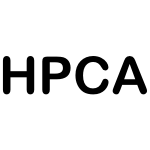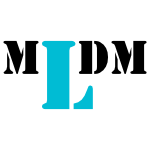19 papers:
 CIKM-2014-WangJDY #adaptation #recommendation #social
CIKM-2014-WangJDY #adaptation #recommendation #social- User Interests Imbalance Exploration in Social Recommendation: A Fitness Adaptation (TW, XJ, XD, XY), pp. 281–290.
 ICML-c3-2013-MenonNAC #algorithm #classification #consistency #on the #statistics
ICML-c3-2013-MenonNAC #algorithm #classification #consistency #on the #statistics- On the Statistical Consistency of Algorithms for Binary Classification under Class Imbalance (AKM, HN, SA, SC), pp. 603–611.
 DATE-2012-NasseryO
DATE-2012-NasseryO- An analytical technique for characterization of transceiver IQ imbalances in the loop-back mode (AN, SO), pp. 1084–1089.
 ICPR-2012-DAmbrosioIS #learning #re-engineering
ICPR-2012-DAmbrosioIS #learning #re-engineering- A One-per-Class reconstruction rule for class imbalance learning (RD, GI, PS), pp. 1310–1313.
 KDD-2012-HoensC #learning
KDD-2012-HoensC #learning- Learning in non-stationary environments with class imbalance (TRH, NVC), pp. 168–176.
 HPCA-2012-MillerPTST #named #process
HPCA-2012-MillerPTST #named #process- Booster: Reactive core acceleration for mitigating the effects of process variation and application imbalance in low-voltage chips (TNM, XP, RT, NS, RT), pp. 27–38.
 ICEIS-v1-2011-PotoleaL #classification #performance
ICEIS-v1-2011-PotoleaL #classification #performance- A Comprehensive Study of the Effect of Class Imbalance on the Performance of Classifiers (RP, CL), pp. 14–21.
 MLDM-2011-LiuM #multi #naive bayes
MLDM-2011-LiuM #multi #naive bayes- Smoothing Multinomial Naïve Bayes in the Presence of Imbalance (AL, CEM), pp. 46–59.
 SIGIR-2011-BlondelSU
SIGIR-2011-BlondelSU- Tackling class imbalance and data scarcity in literature-based gene function annotation (MB, KS, KU), pp. 1123–1124.
 ICSE-2011-OhHVP #concurrent #debugging #execution #framework #multi #named #thread
ICSE-2011-OhHVP #concurrent #debugging #execution #framework #multi #named #thread- LIME: a framework for debugging load imbalance in multi-threaded execution (JO, CJH, GV, MP), pp. 201–210.
 ICPR-2010-DitzlerPC #algorithm #incremental #learning
ICPR-2010-DitzlerPC #algorithm #incremental #learning- An Incremental Learning Algorithm for Non-stationary Environments and Class Imbalance (GD, RP, NVC), pp. 2997–3000.
 ICPR-2010-YinAB #classification
ICPR-2010-YinAB #classification- Imbalance and Concentration in k-NN Classification (DY, CA, HSB), pp. 2170–2173.
 KDD-2010-AttenbergP #classification #learning #modelling #why
KDD-2010-AttenbergP #classification #learning #modelling #why- Why label when you can search?: alternatives to active learning for applying human resources to build classification models under extreme class imbalance (JA, FJP), pp. 423–432.
 KDIR-2010-AddisAV #categorisation
KDIR-2010-AddisAV #categorisation- Assessing Progressive Filtering to Perform Hierarchical Text Categorization in Presence of Input Imbalance (AA, GA, EV), pp. 14–23.
 KDIR-2010-PadmajaBK #framework #problem #reduction
KDIR-2010-PadmajaBK #framework #problem #reduction- A Class Specific Dimensionality Reduction Framework for Class Imbalance Problem: CPC_SMOTE (TMP, RSB, PRK), pp. 237–242.
 SEKE-2007-FollecoKHS #learning #quality
SEKE-2007-FollecoKHS #learning #quality- Learning from Software Quality Data with Class Imbalance and Noise (AF, TMK, JVH, CS), p. 487–?.
 SIGIR-2007-ErtekinHG #learning #problem
SIGIR-2007-ErtekinHG #learning #problem- Active learning for class imbalance problem (SE, JH, CLG), pp. 823–824.
 OOPSLA-2007-Rinard #termination #using
OOPSLA-2007-Rinard #termination #using- Using early phase termination to eliminate load imbalances at barrier synchronization points (MCR), pp. 369–386.
 KDD-2006-Forman #classification #fault #roadmap
KDD-2006-Forman #classification #fault #roadmap- Quantifying trends accurately despite classifier error and class imbalance (GF), pp. 157–166.
 CIKM-2014-WangJDY #adaptation #recommendation #social
CIKM-2014-WangJDY #adaptation #recommendation #social ICML-c3-2013-MenonNAC #algorithm #classification #consistency #on the #statistics
ICML-c3-2013-MenonNAC #algorithm #classification #consistency #on the #statistics DATE-2012-NasseryO
DATE-2012-NasseryO ICPR-2012-DAmbrosioIS #learning #re-engineering
ICPR-2012-DAmbrosioIS #learning #re-engineering KDD-2012-HoensC #learning
KDD-2012-HoensC #learning HPCA-2012-MillerPTST #named #process
HPCA-2012-MillerPTST #named #process ICEIS-v1-2011-PotoleaL #classification #performance
ICEIS-v1-2011-PotoleaL #classification #performance MLDM-2011-LiuM #multi #naive bayes
MLDM-2011-LiuM #multi #naive bayes SIGIR-2011-BlondelSU
SIGIR-2011-BlondelSU ICSE-2011-OhHVP #concurrent #debugging #execution #framework #multi #named #thread
ICSE-2011-OhHVP #concurrent #debugging #execution #framework #multi #named #thread ICPR-2010-DitzlerPC #algorithm #incremental #learning
ICPR-2010-DitzlerPC #algorithm #incremental #learning ICPR-2010-YinAB #classification
ICPR-2010-YinAB #classification KDD-2010-AttenbergP #classification #learning #modelling #why
KDD-2010-AttenbergP #classification #learning #modelling #why KDIR-2010-AddisAV #categorisation
KDIR-2010-AddisAV #categorisation KDIR-2010-PadmajaBK #framework #problem #reduction
KDIR-2010-PadmajaBK #framework #problem #reduction SEKE-2007-FollecoKHS #learning #quality
SEKE-2007-FollecoKHS #learning #quality SIGIR-2007-ErtekinHG #learning #problem
SIGIR-2007-ErtekinHG #learning #problem OOPSLA-2007-Rinard #termination #using
OOPSLA-2007-Rinard #termination #using KDD-2006-Forman #classification #fault #roadmap
KDD-2006-Forman #classification #fault #roadmap









